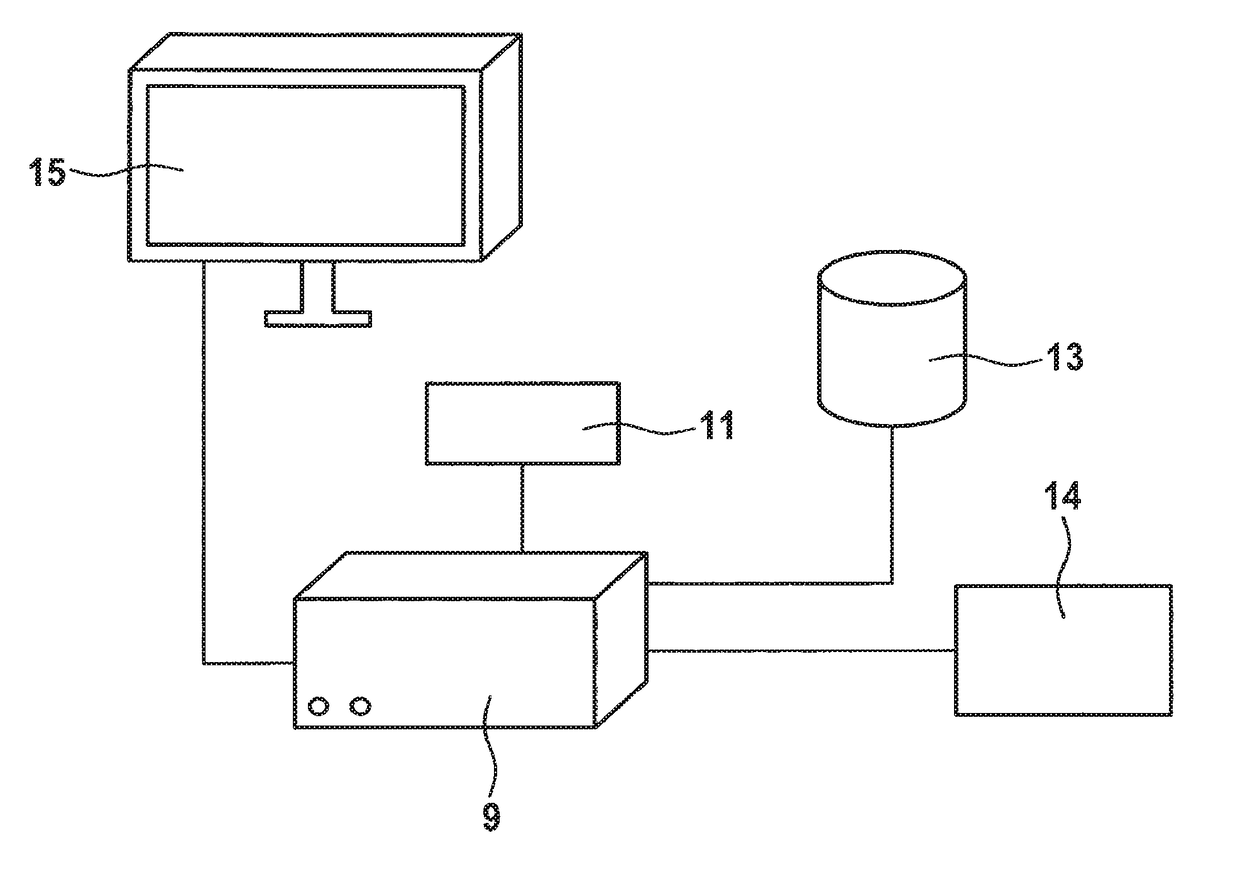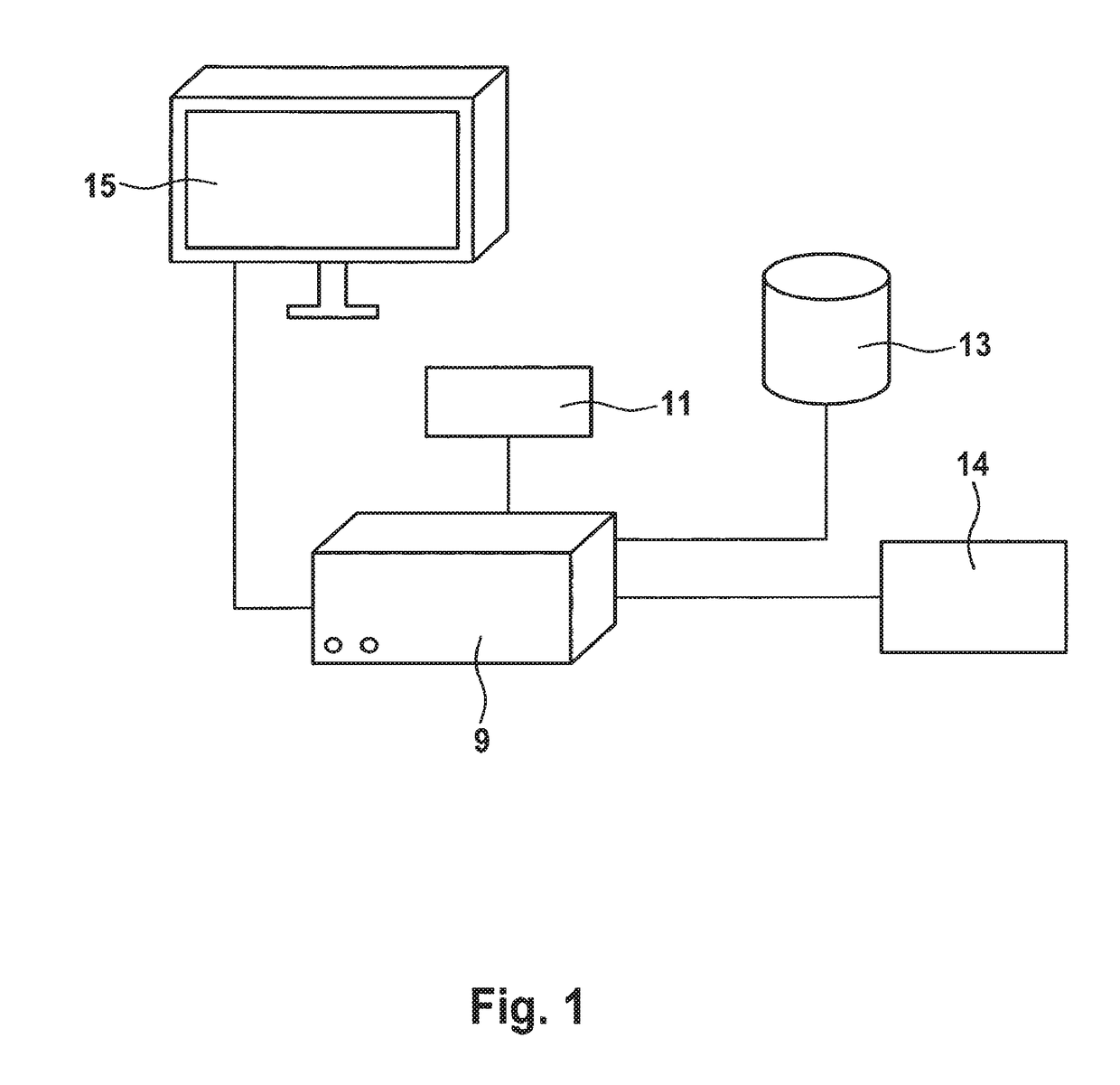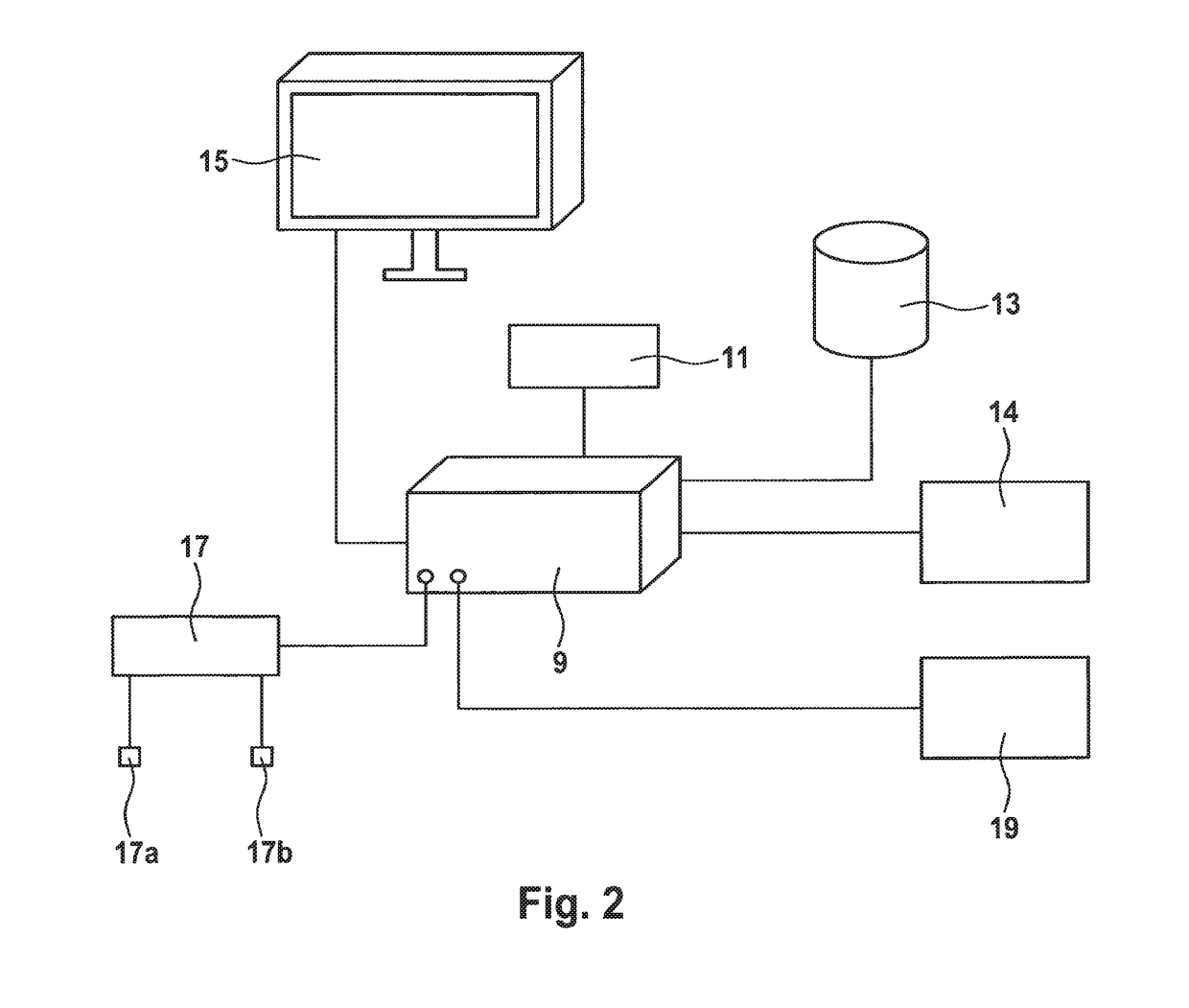Methods and apparatuses for predicting the effects of erythropoiesis stimulating agents, and for determining a dose to be administered
a technology of erythropoietin and erythropoietin, which is applied in the field of methods and apparatuses for predicting the effects of erythropoietin stimulating agents, and for determining the dose to be administered, can solve the problems of hb stable within defined guidelines, erythrocyte mass not reaching steady state,
- Summary
- Abstract
- Description
- Claims
- Application Information
AI Technical Summary
Benefits of technology
Problems solved by technology
Method used
Image
Examples
first embodiment
[0133]the present invention is called the straight forward approach and will be explained in the following without making reference to any figure. The straight forward approach comprises or consists of the following steps, findings or considerations:
[0134]In the straight forward approach, if one or more pre-measured (i. e., measured before carrying out the method according to the present invention) concentration values or mass values of hemoglobin (short also: Hb) are found to be below the target range suggested by guidelines or requested by the physician in charge for a particular patient based on prior art knowledge, the prescription of the patient's dose of ESA (or EPO, in particular) is stepwise increased, particularly in form of a mental or academic act, e. g., in form of hints regarding to the prescription of EPO.
[0135]Also, Hb concentration or mass values obtained by frequent measurements (in certain embodiments these are values that had been obtained before and / or after ever...
second embodiment
[0144]With respect to FIG. 3, the present invention, called a simplified Hb control based on normohydrated Hb, will be explained in the following.
[0145]A major feature of this second embodiment is defining a target range based on the normohydrated Hb. In the following, this target range is called a second target range irrespective of whether there is also a first target range or not so as to emphasize that this second target range may be different from a commonly observed—and therefore referred to as “first”—Hb target range proposed by, e.g., guidelines.
[0146]The second target range of the normohydrated Hb will in most cases be higher than (first) guideline values for Hb measured—the guidelines refer to a typical predialytic situation to set up the target, a situation in which the patient is ca. 2 L fluid overloaded.
[0147]In the second embodiment or model, the Hb concentration is measured on a frequent basis. The fluid status is also measured on a frequent basis. In certain embodime...
third embodiment
[0158]the present invention is called by the inventors a Hb kinetic model and will be explained in the following with respect to the FIGS. 4 to 14.
[0159]The general idea of the model may be described as follows:
[0160]In health, receptors that monitor oxygen delivery control the secretion of erythropoietin (also referred to as EPO being an erythrocyte stimulating agent, ESA) that regulates the production of pro-erythroblasts from colony forming units. Depending on the level of available iron (e. g., measured with the TSAT level) the content of heme or hemoglobin in the red blood cells (RBC) is influenced. TSAT has no impact on the number of RBC; rather, it is needed to fully equip the RBC with hemoglobin. Low TSAT and high ferritin levels are, e. g., a marker of possible iron deficiency. The supply and destruction of erythrocytes ultimately determines the Hb mass that is maintained in a subject. Normally, when Hb levels decrease this causes an increase in EPO concentration to stimula...
PUM
| Property | Measurement | Unit |
|---|---|---|
| concentration | aaaaa | aaaaa |
| mass | aaaaa | aaaaa |
| lifetime | aaaaa | aaaaa |
Abstract
Description
Claims
Application Information
 Login to View More
Login to View More - R&D
- Intellectual Property
- Life Sciences
- Materials
- Tech Scout
- Unparalleled Data Quality
- Higher Quality Content
- 60% Fewer Hallucinations
Browse by: Latest US Patents, China's latest patents, Technical Efficacy Thesaurus, Application Domain, Technology Topic, Popular Technical Reports.
© 2025 PatSnap. All rights reserved.Legal|Privacy policy|Modern Slavery Act Transparency Statement|Sitemap|About US| Contact US: help@patsnap.com



